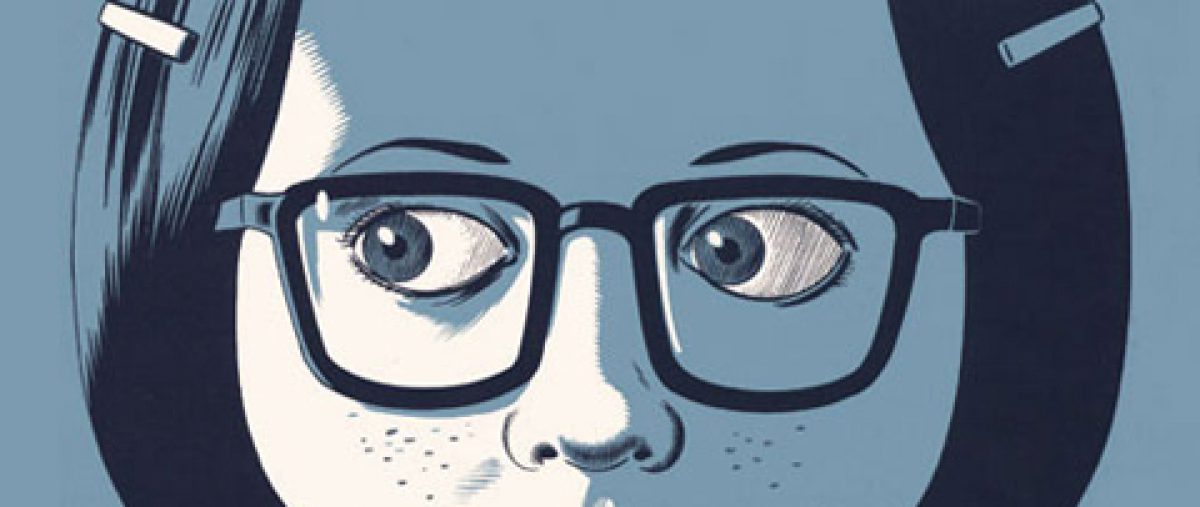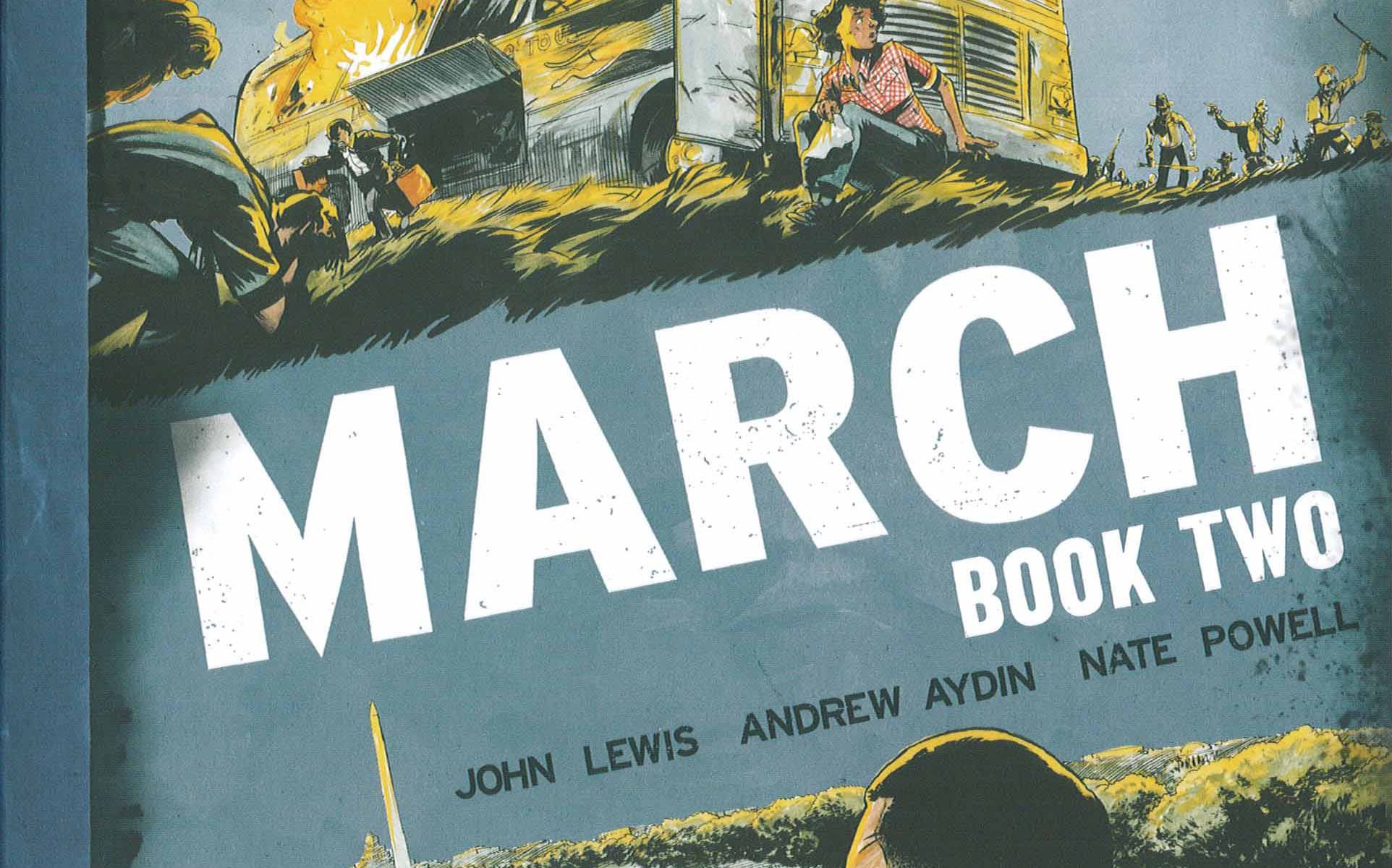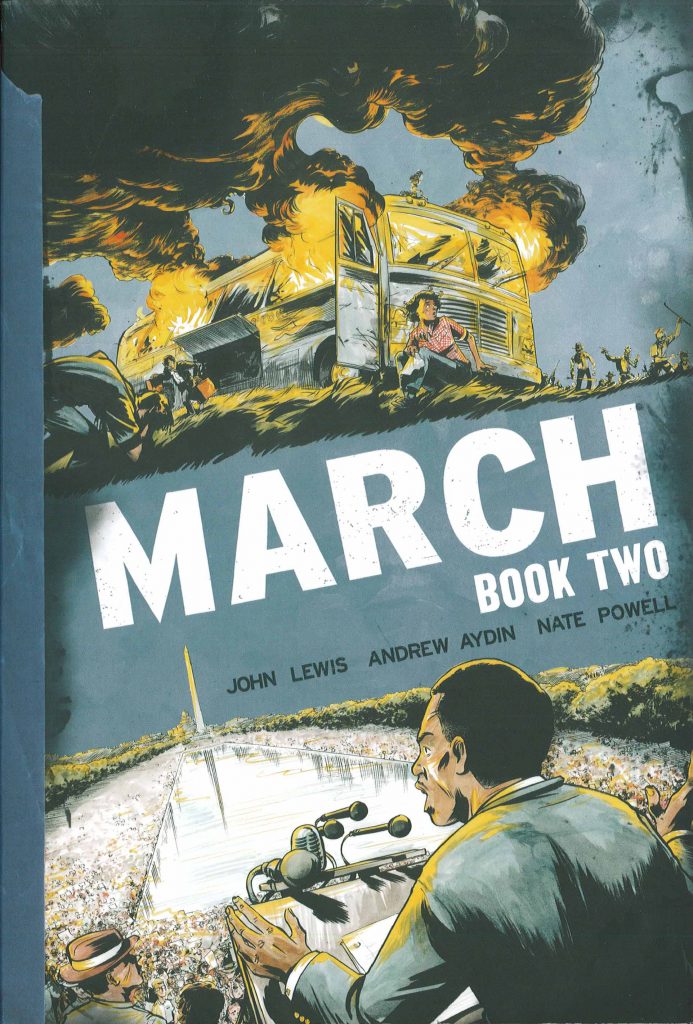First review for my new site below! And as promised, I’m also beginning to upload my archives from the Elkhart Truth. I was planning on starting with my most recent, from February 2016, but today’s news about Charlottesville prompted me to start in the middle of 2015 with John Lewis’s March: Book Two. Check out the archives links to the right if you’re interested.
A Girl and Her Dog: Fetch, How a Bad Dog Brought Me Home, a Graphic Pet Memoir by Nicole Georges




